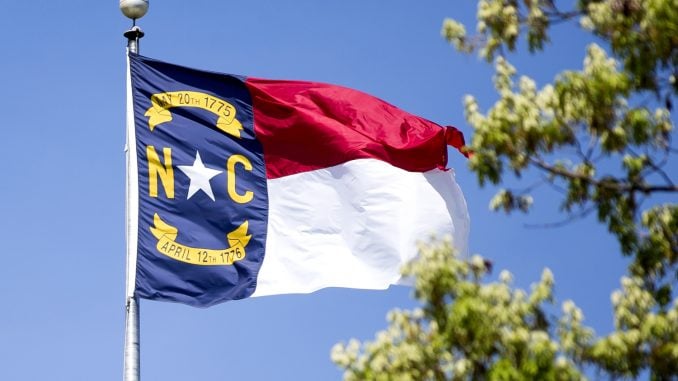
Do you ever wonder why “First in Freedom” is printed on some North Carolina license plates, or why April 12, 1776 is one of the two dates on the plate and on the North Carolina flag?April 12 is the anniversary of the Halifax Resolves a document that empowered the three North Carolina delegates at the Continental Congress to “concur with delegates of the other colonies in declaring independency and forming foreign â¨alliances . . .” This action was a first! According to the prolific “father of American history,” George Bancroft, “North Carolina was the first colony to vote explicit sanction to independence.” The intellectually versatile historian of North Carolina, Samuel A’Court Ashe, later added: the Halifax Resolves “was the first utterance for separation that had been made on behalf of any colony in America.”It was more than that, however. Historian Hugh T. Lefler points out that the resolution was also “a recommendation to the Continental Congress that independence should be declared by all colonies.” Later in 1776, the document was reprinted in newspapers in various colonies and read to the Continental Congress. Elbridge Gerry of Massachusetts even beseeched his peers to implore their respective assemblies to adopt similar resolutions; he hoped, in particular, that “his native colony [might] follow this laudable example.” On May 15, Virginia “followed North Carolina’s lead,” writes native North Carolinian and first Archivist of the United States, R.D.W. Connor. Virginia, though, directed its delegation to propose independence.What prompted North Carolina’s action? For some time, American colonists debated whether to separate from Great Britain. Although there were many Loyalists across the American colonies, many Americans complained that British Parliament overstepped its constitutional authority. In particular, they believed that local assemblies only had the right to tax colonists. Yet for some time, Americans remained loyal to the Crown that is, if he provided protection from what they deemed parliamentary usurpation. (Colonists reminded the Crown that the British constitution bound both the Crown and his subjects.) When North Carolina colonists believed the Crown ignored their requests and “charter rights,” many started championing independence.A series of resolutions by various Committees of Safety expressed these sentiments. As Patriot sentiment increased up and down the Atlantic seaboard from colony to colony, it expanded from east to west in a colony that would become known as the Old North State. In 1775, the Mecklenburg Resolves, the resolves issued at Martinsborough, the “association” formed by the New Hanover Committee of Safety to name only three examples were antecedents to the Halifax Resolves.During early 1776, the political divide increased between American colonists and the British government. The North Carolina delegation at the Continental Congress John Penn, Joseph Hewes, and William Hooper observed an increasing “spirit of independence” at the Continental Congress. The seemingly most assertive of the North Carolina delegates, Penn, wrote: “Matters are drawing to a crisis.” Hewes concurred: “I see no prospect of reconciliation.” While some delegates demanded immediate action, others preferred postponement. In short, delegates at the Continental Congress were in a quandary. What was to be done? And, what was the best way to execute an action?For months, North Carolina Patriot pamphleteers slowly fostered “a spirit of independence” by writing with quills while Patriot orators perfected their rhetoric and eloquence. When the guns ceased and the smoke cleared after Patriots defeated Loyalists at the Battle of Moores Creek Bridge on Feb. 27, 1776, many believed the colony had “crossed the Rubicon.” Meanwhile, North Carolina’s delegation at the Continental Congress desired to know “the sentiments” and wanted direction from the North Carolina Provincial Congress regarding forming alliances.On April 12, 1776, Hewes, Penn, and Hooper were given an answer via resolution. Acting before South Carolina and Virginia and before any other colony, North Carolina’s Fourth Provincial Congress unanimously passed the Halifax Resolves. The colony had given the Continental Congress a needed impulse. The Old North State was “first in freedom.”Troy Kickler holds a doctorate in history and is a longtime student of North Carolina’s past. His numerous works include “The King’s Trouble Makers.”



